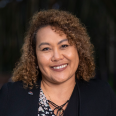We launched our first RAP in 2008. Since then, our reconciliation journey has helped us grow as a department. We are proud of our history working closely with Aboriginal and Torres Strait Islander peoples across Australia and our commitment to employment opportunities for Aboriginal and Torres Strait Islander peoples. Our journey has provided important economic and social opportunities for Aboriginal and Torres Strait Islander peoples and communities.
Our achievements
- We established a strong Indigenous Employee Network. The network provides peer support, networking and professional development opportunities for Aboriginal and/or Torres Strait Islander employees.
- We carried out a cultural and inclusion review to build a collective approach and commitment to cultural change and inclusion.
- We developed and launched our Aboriginal and Torres Strait Islander Business Support Roadmap. This includes initiatives to:
- improve Aboriginal and/or Torres Strait Islander business access to programs
- improve Aboriginal and/or Torres Strait Islander business outcomes through procurement
- build our Aboriginal and Torres Strait Islander engagement ecosystem.
- We built the economic capacity of Aboriginal and Torres Strait Islander businesses through the government’s Indigenous Procurement Policy. We continue to grow in this area and provide economic opportunities to suppliers. This includes contracting Aboriginal and Torres Strait Islander cultural advisors, conference and cultural capability workshop facilitators, and community members to provide cultural immersion experiences, performances and localised expertise. By procuring these services we have built strong ongoing relationships with Aboriginal and Torres Strait Islander people, businesses and communities.
- In 2020 we signed a portfolio-wide Statement of Reconciliation demonstrating our ongoing commitment to reconciliation principles, particularly relating to cultural protocols, recruitment, and policy and program delivery. The statement has led to a more collaborative approach to reconciliation, enabled ongoing dialogue between portfolio agencies, and provided more opportunities for Aboriginal and Torres Strait Islander economic empowerment.
- We provided development opportunities, including training, and launched our Aboriginal and Torres Strait Islander scholarship program, with 3 scholarships being awarded to date. We will continue building these opportunities so staff can further enhance their skills and take on leadership roles in the department.
- In 2021 we partnered with a First Nations recruitment agency to deliver an affirmative measures recruitment round. This ensured recruitment processes were targeted, streamlined and supported direct entry pathways for Aboriginal and Torres Strait Islander candidates. We hired 28 new staff, increasing the department’s proportion of Aboriginal and/or Torres Strait Islander staff from 1.6% to 2.5%.
- We offer our staff cultural immersion experiences including on-Country visits, Jawun Program secondments and participation in the Garma Festival. These experiences let staff connect with Aboriginal and Torres Strait Islander cultures at a deeper level and appreciate the values and diversity of traditional knowledge. Staff who participated in these opportunities brought their learnings back to the workplace and continue sharing their knowledge with others to build a deeper understanding of Aboriginal and Torres Strait Islander cultures.
- In July 2021 we launched the Arrilla Digital workplace cultural competency tool for all employees. More than 2000 staff have completed the cultural awareness training.
Case study 1: Affirmative measures recruitment round
Our Indigenous Affirmative Measures Program in 2021 demonstrated our commitment to reconciliation and the value of inclusion and diversity. The program was led by our People Branch in partnership with Aboriginal Employment Strategy, a specialist Aboriginal and Torres Strait Islander recruitment agency.
We invested significant time and effort in an approach that:
- established trust
- provided personalised support, empowerment and mentoring of Aboriginal and Torres Strait Islander candidates
- emphasised accountability and inclusion.
We attracted candidates using a variety of channels, including:
- targeted online advertising
- Aboriginal and Torres Strait Islander radio stations
- connecting with Aboriginal and Torres Strait Islander businesses
- standard advertising channels, such as the department website and APSJobs website.
Aboriginal Employment Strategy also worked hard to identify and recruit candidates through community networks.
We ensured the screening, selection and placement of candidates was inclusive, accessible and provided tailored support. Candidates received detailed information to help them understand roles and business requirements. This gave them meaningful opportunities to showcase their capabilities, capacity and interests with confidence.
Candidates received specialised induction and training based on their needs. The skills, adaptability and attitudes of the trainers were vital to the success of the training program.
We provided ongoing support for successful candidates based on their individual strengths and needs. The inclusion business partner in People Branch led this support in conjunction with employees and their managers. By creating support for each employee, the inclusion business partner will increase retention and provide meaningful employment pathways.
The Indigenous Affirmative Measures Program has demonstrated impressive outcomes, including:
- placing 28 Aboriginal and Torres Strait Islander employees in various roles across the department
- a robust, supportive network to build employees’ confidence, connection and skills
- a high level of staff satisfaction in how we managed the recruitment, employment and training process.
Key learnings
We previously had limited success using standard recruitment methods to attract Aboriginal and/or Torres Strait Islander candidates. Our previous bulk affirmative measures round was Canberra-centric and only used traditional APS marketing strategies.
We saw a significant improvement in the number and quality of applications we received by:
- partnering with a specialist Aboriginal and Torres Strait Islander recruitment agency
- developing a bespoke marketing strategy
- taking advantage of our national footprint.
We will continue using this recruitment method and share the lessons we learned with other organisations.
Case study 2: Arrilla Digital cultural competency program
The Arrilla Digital cultural competency program has been critical in increasing our overall cultural awareness, competency and safety.
Before we introduced Arrilla Digital, less than 5% of staff had completed an online cultural competency program. We saw this as an opportunity to make real progress on reconciliation in the department. We partnered with a Supply Nation-certified provider – Arrilla Digital – to roll out an organisation-wide online cultural capability program that met our department’s specific needs.
We used a sustained promotion campaign to ensure the program was successful. Shelly Reys, CEO and founder of Arrilla, gave the keynote address for our National Reconciliation Week 2021 program and launched Arrilla Digital. We followed the launch with an internal communications campaign that included messages from our secretary, intranet articles and talking points for senior executives. Heads of division received weekly updates for 2 months, outlining how many of their staff had completed the program and suggesting strategies to increase uptake.
Within 3 months of launch, over 2,000 staff had completed the Arrilla Digital training, which was 70% of our workforce. This gave staff a strong baseline of cultural competency to support our intake of Aboriginal and Torres Strait Islander staff in 2021.
Key learnings
During our last RAP we identified that we weren’t meeting our targets for cultural learning. Building cultural capability is one of our priorities, so it was important to address this issue.
We identified that our existing cultural competency training offering wasn’t fit for purpose, particularly our online training. By introducing an aligned online training package, we saw completion rates reach over 70% within 12 months.
In this RAP we will keep investing in tailored cultural learning programs. This will help employees better understand, value and recognise Aboriginal and Torres Strait Islander cultures, histories, artwork, knowledge and rights.



